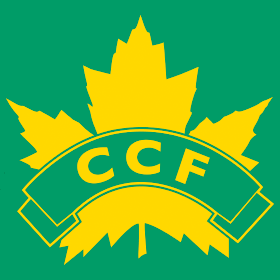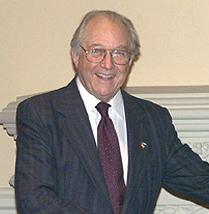Manitoba's general election of June 16, 1958 was held to elect Members of the Legislative Assembly of the Province of Manitoba, Canada.

The Legislative Assembly of Manitoba and the Queen of Canada in Right of Manitoba, represented by the Lieutenant Governor of Manitoba form the legislature of the Canadian province of Manitoba. Fifty-seven members are elected to this assembly in provincial general elections, all in single-member constituencies with first-past-the-post voting. The Manitoba Legislative Building is located in central Winnipeg, at the meeting point of the Wolseley and Fort Rouge constituencies.

Manitoba is a province at the longitudinal centre of Canada. It is often considered one of the three prairie provinces and is Canada's fifth-most populous province with its estimated 1.3 million people. Manitoba covers 649,950 square kilometres (250,900 sq mi) with a widely varied landscape, stretching from the northern oceanic coastline to the southern border with the United States. The province is bordered by the provinces of Ontario to the east and Saskatchewan to the west, the territories of Nunavut to the north, and Northwest Territories to the northwest, and the U.S. states of North Dakota and Minnesota to the south.

Canada is a country in the northern part of North America. Its ten provinces and three territories extend from the Atlantic to the Pacific and northward into the Arctic Ocean, covering 9.98 million square kilometres, making it the world's second-largest country by total area. Canada's southern border with the United States is the world's longest bi-national land border. Its capital is Ottawa, and its three largest metropolitan areas are Toronto, Montreal, and Vancouver. As a whole, Canada is sparsely populated, the majority of its land area being dominated by forest and tundra. Consequently, its population is highly urbanized, with over 80 percent of its inhabitants concentrated in large and medium-sized cities, with 70% of citizens residing within 100 kilometres of the US border. Canada's climate varies widely across its vast area, ranging from arctic weather in the north, to hot summers in the southern regions, with four distinct seasons.
Contents
This election was the first in Manitoba after a comprehensive electoral redistribution in 1956. The redistribution saw the city of Winnipeg abandon its multi-member ridings for single-member constituencies, and gain increased representation in the legislature.
It resulted in a minority victory for the Progressive Conservative Party under the leadership of Dufferin Roblin. Roblin's Tories won twenty-six seats, while Premier Douglas Campbell's Liberal-Progressives were reduced to second-place status with nineteen. The social democratic Co-operative Commonwealth Federation (CCF) held the balance of power with eleven seats, and independent Stephen Juba was also elected in Winnipeg. Both Social Credit and the Labour Progressive Party lost their legislative representation.
The Progressive Conservative Party of Manitoba is a right-of-centre political party in Manitoba, Canada and the only right-leaning party in the province. It is currently the governing party in the Legislative Assembly of Manitoba, after winning a substantial majority in the 2016 provincial election.

Dufferin "Duff" Roblin, was a Canadian businessman and politician. Known as "Duff," he served as the 14th Premier of Manitoba from 1958 to 1967. Roblin was appointed to the Senate of Canada on the advice of Prime Minister Pierre Trudeau. In the government of Brian Mulroney, he served as Senate Leader. He was the grandson of Sir Rodmond Roblin, who also served as Manitoba Premier. His ancestor John Roblin served in the Upper Canada assembly.

The Premier of Manitoba is the first minister for the Canadian province of Manitoba. The premier is the province's head of government and de facto chief executive. In formal terms, the premier receives a commission to form a government from the Lieutenant Governor of Manitoba, who represents the monarch at the provincial level.
After the election, the Liberal-Progressives attempted to form a coalition with the CCF to remain in power. The CCF rejected this offer, and allowed Roblin's Tories to form government, ending 36 years of Progressive and Liberal-Progressive led governments in Manitoba. Although the Progressive Conservatives had been part of a coalition government with the Liberal-Progressives from 1940 to 1950, this was the first time since 1915 that they had formed an administration on their own.
A coalition government is a cabinet of a parliamentary government in which multiple political parties cooperate, reducing the dominance of any one party within that "coalition". The usual reason for this arrangement is that no party on its own can achieve a majority in the parliament. A coalition government might also be created in a time of national difficulty or crisis to give a government the high degree of perceived political legitimacy or collective identity it desires while also playing a role in diminishing internal political strife. In such times, parties have formed all-party coalitions. If a coalition collapses, a confidence vote is held or a motion of no confidence is taken.
This minority parliament proved unstable, and Roblin's government was defeated in the legislature in early 1959. Manitobans returned to the polls shortly thereafter.




